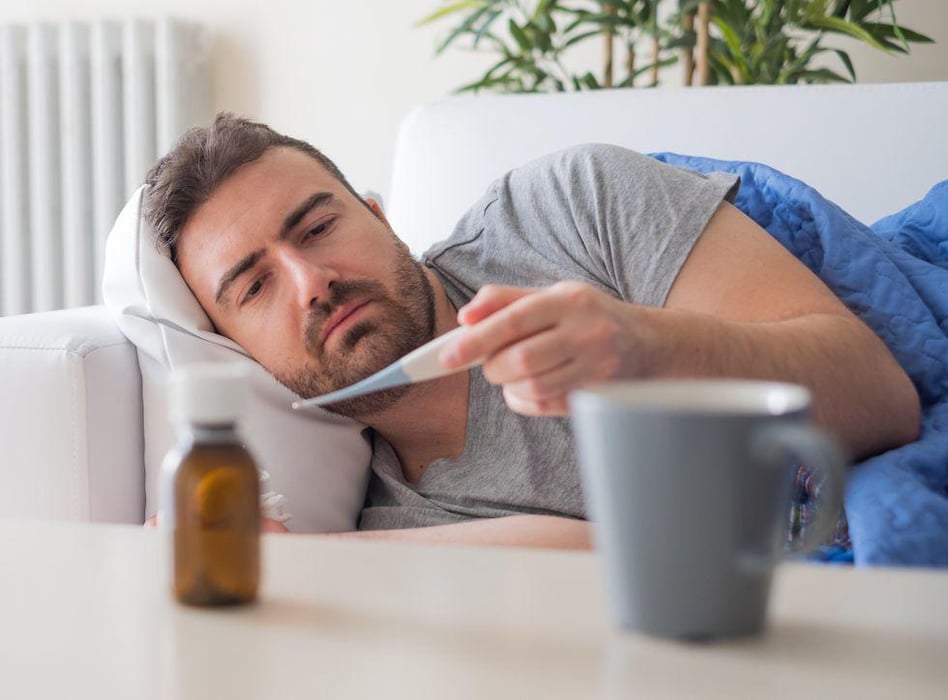Damage to Health Mounts With Each New COVID Infection

MONDAY, Nov. 14, 2022 (HealthDay News) -- Every time a person gets infected with COVID-19, their risk of dying or suffering serious long-term health problems increases dramatically, a new study has found.
People with repeated COVID-19 infections are twice as likely to die and three times as likely to be hospitalized compared to those only infected once, according to the report published online Nov. 10 in the journal Nature Medicine.
Repeat COVID-19 patients are also three times more likely to develop lung and heart problems, and 60% more likely to develop a brain condition, the researchers found.
“Without ambiguity, our research showed that getting an infection a second, third or fourth time contributes to additional health risks in the acute phase, meaning the first 30 days after infection, and in the months beyond, meaning the long COVID phase,” said senior researcher Dr. Ziyad Al-Aly. He is a clinical epidemiologist at Washington University School of Medicine in St. Louis.
The researchers also found that the risk rises with each additional infection.
“This means that even if you’ve had two COVID-19 infections, it’s better to avoid a third,” Al-Aly said in a university news release. “And if you’ve had three infections, it’s best to avoid the fourth.”
For the study, the investigators analyzed medical records of about 5.8 million patients treated by the U.S. Department of Veterans Affairs, the nation’s largest integrated health care system.
The researchers compared nearly 41,000 people who had two or more documented COVID-19 infections with more than 443,000 people who had been infected once and 5.3 million others who were COVID-free between March 2020 and April 2022.
Most of the people who had been reinfected had gone through two or three bouts with COVID-19. A small number had four infections, and no one had five or more.
Statistical modeling assessed the health risks of repeat COVID-19 infections within the first month after contracting the virus, and then up to six months after.
The results pierce the “air of invincibility among people who have had COVID-19 or their vaccinations and boosters, and especially among people who have had an infection and also received vaccines,” Al-Aly said.
People who have had COVID-19 once should take every possible precaution to protect their health and prevent reinfection, he advised.
“Going into the winter season, people should be aware of the risks and practice vigilance to reduce their risk of infection or reinfection with SARS-CoV-2,” Al-Aly said.
He urged people to wear a mask, get all of their eligible boosters and stay home when they're ill.
“Also, get a flu shot to prevent illness,” Al-Aly added. “We really need to do our best to reduce the chance we will have a twin-demic of both COVID-19 and the flu this winter season.”
More information
The U.S. Centers for Disease Control and Prevention has more about COVID reinfection.
SOURCE: Washington University School of Medicine in St. Louis, news release, Nov. 10, 2022
Related Posts
Most IVF Babies Grow Up to Be Mentally Healthy Adults, Study Shows
TUESDAY, Dec. 21, 2021 (HealthDay News) -- There is no increased risk of mental...
Los cigarrillos electrónicos mentolados podrían ser incluso más tóxicos para los pulmones
MARTES, 11 de abril de 2023 (HealthDay News) -- Añadir sabor de mentol a los...
FDA Advisory Panel Set to Meet on Booster Shots
THURSDAY, Sept. 2, 2021 (HealthDay News) -- The U.S. Food and Drug...
Un programa busca llevar medicamentos que salvan vidas a los niños con cáncer en los países más pobres
https://consumer.healthday.com/b-12-16-program-aim... Credit: HealthDay
